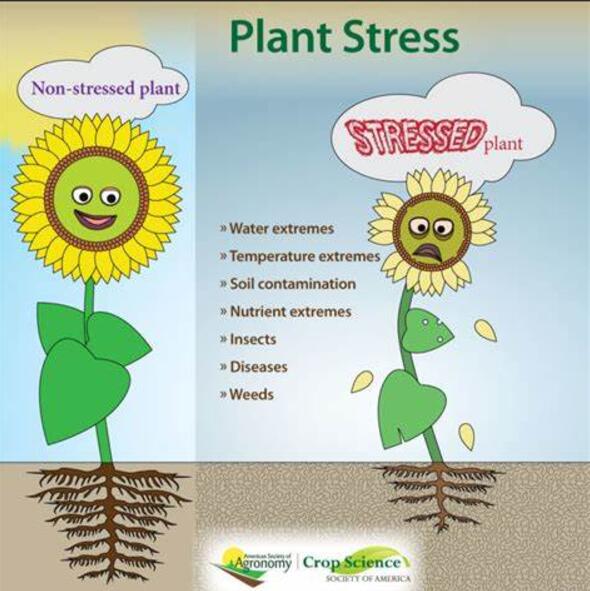Recent evidence for transgenerational adaptation resulting from stress induced changes in the cytosine methylation landscape of plants
IF 6.8
Q1 PLANT SCIENCES
引用次数: 0
Abstract
This paper reviews the emerging evidence for the role of cytosine methylation in transgenerational adaptation to environmental stress in plants. The ability of plants to propagate acquired epigenetic changes through cell division indicates their potential role in long term adaptation to changing environmental conditions. The key role in this process is the interaction between cytosine methylation, histone modifications and RdDM. The main target for cytosine methylation are the transposon elements (TEs). Stress induced differential methylation of TEs can induce cis- and trans- regulation of gene activity as well as their mutagenic potential. TE insertion however, does not happen completely at random, but is dependent on the histones present in the chromatin structure of a particular genomic region. Recent experiments show strong evidence for preferential stress induced TE activation and insertion as a force in short and long term adaptation. Additional evidence exists for unique activation of TEs during meiosis, enhancing the probabilities for unique beneficial mutations in the progeny. Plants have evolved different responses for many types of stress and depending on the severity, duration and repetitiveness of the stress can induce different types of epigenetic changes. Drought, nutrients, salinity, temperature and various types of biotic stresses have their own cytosine methylation profile. This data highlights the potential existence of a strong internal mechanism for stress induced transgenerational adaptation, which can be harnessed for developing stress-resilient crops.
求助全文
约1分钟内获得全文
求助全文
来源期刊

Plant Stress
PLANT SCIENCES-
CiteScore
5.20
自引率
8.00%
发文量
76
审稿时长
63 days
期刊介绍:
The journal Plant Stress deals with plant (or other photoautotrophs, such as algae, cyanobacteria and lichens) responses to abiotic and biotic stress factors that can result in limited growth and productivity. Such responses can be analyzed and described at a physiological, biochemical and molecular level. Experimental approaches/technologies aiming to improve growth and productivity with a potential for downstream validation under stress conditions will also be considered. Both fundamental and applied research manuscripts are welcome, provided that clear mechanistic hypotheses are made and descriptive approaches are avoided. In addition, high-quality review articles will also be considered, provided they follow a critical approach and stimulate thought for future research avenues.
Plant Stress welcomes high-quality manuscripts related (but not limited) to interactions between plants and:
Lack of water (drought) and excess (flooding),
Salinity stress,
Elevated temperature and/or low temperature (chilling and freezing),
Hypoxia and/or anoxia,
Mineral nutrient excess and/or deficiency,
Heavy metals and/or metalloids,
Plant priming (chemical, biological, physiological, nanomaterial, biostimulant) approaches for improved stress protection,
Viral, phytoplasma, bacterial and fungal plant-pathogen interactions.
The journal welcomes basic and applied research articles, as well as review articles and short communications. All submitted manuscripts will be subject to a thorough peer-reviewing process.
 求助内容:
求助内容: 应助结果提醒方式:
应助结果提醒方式:


